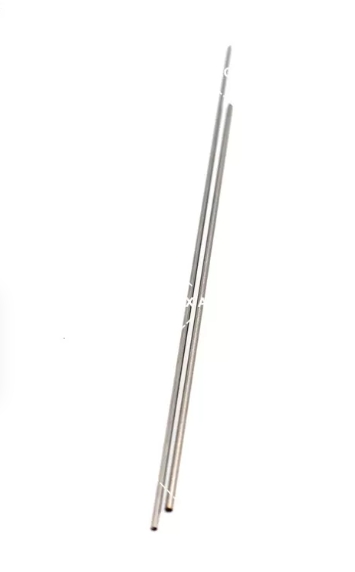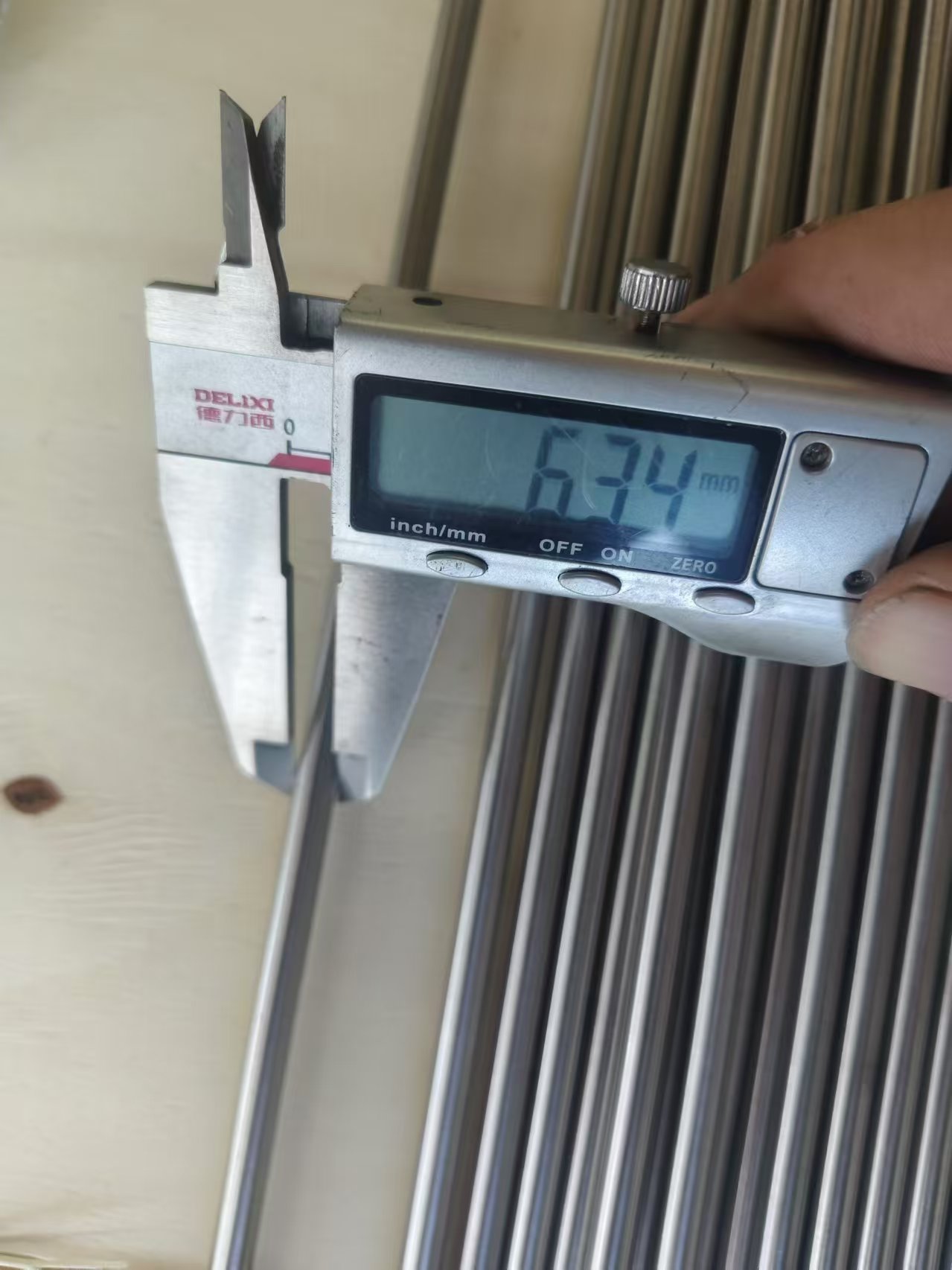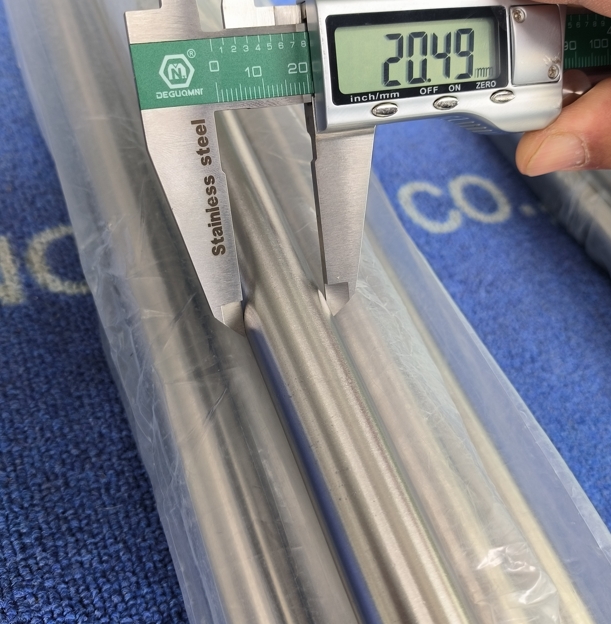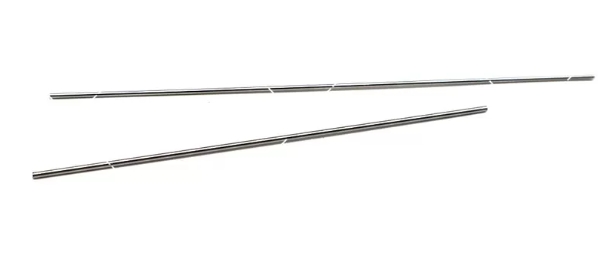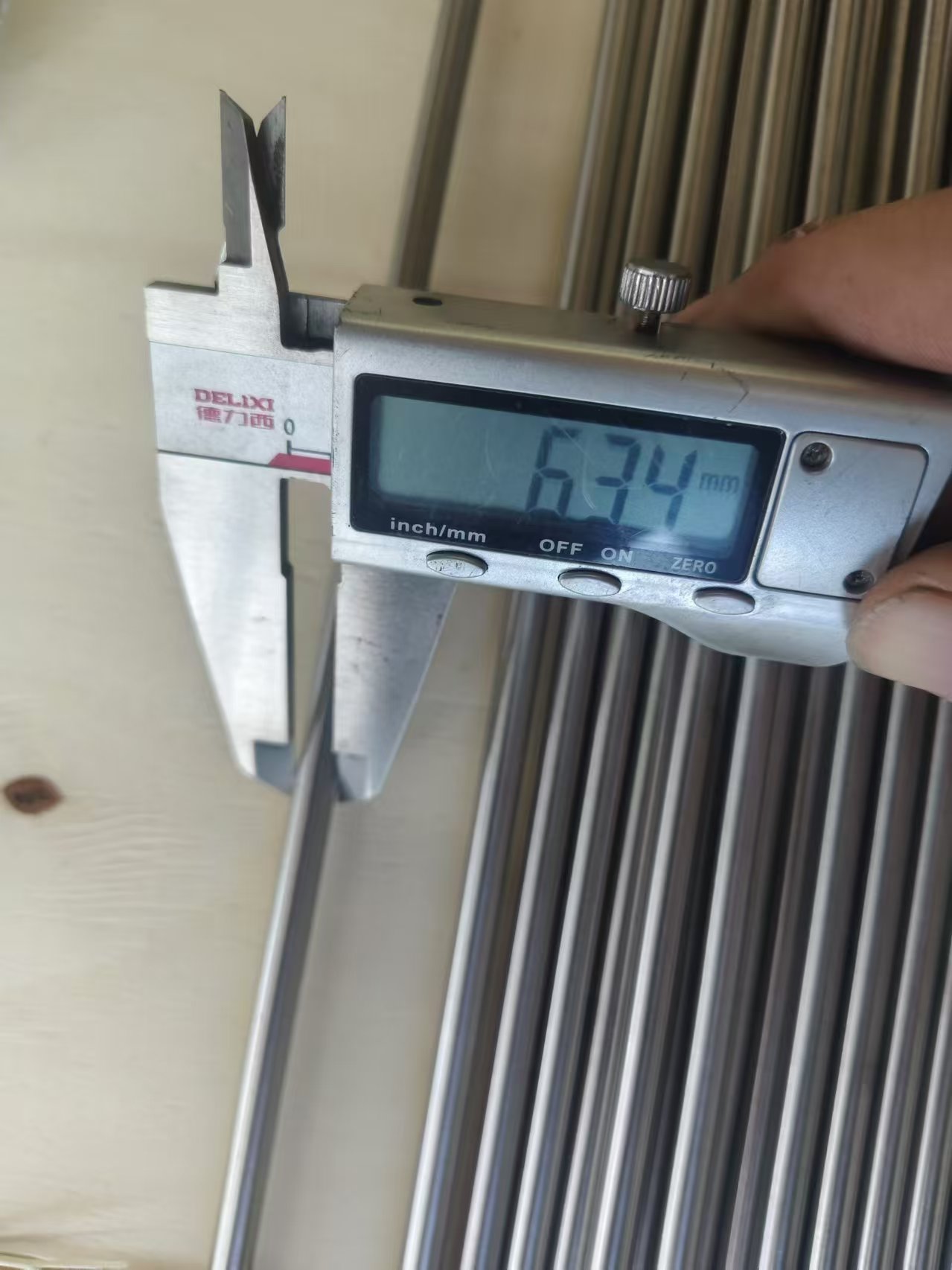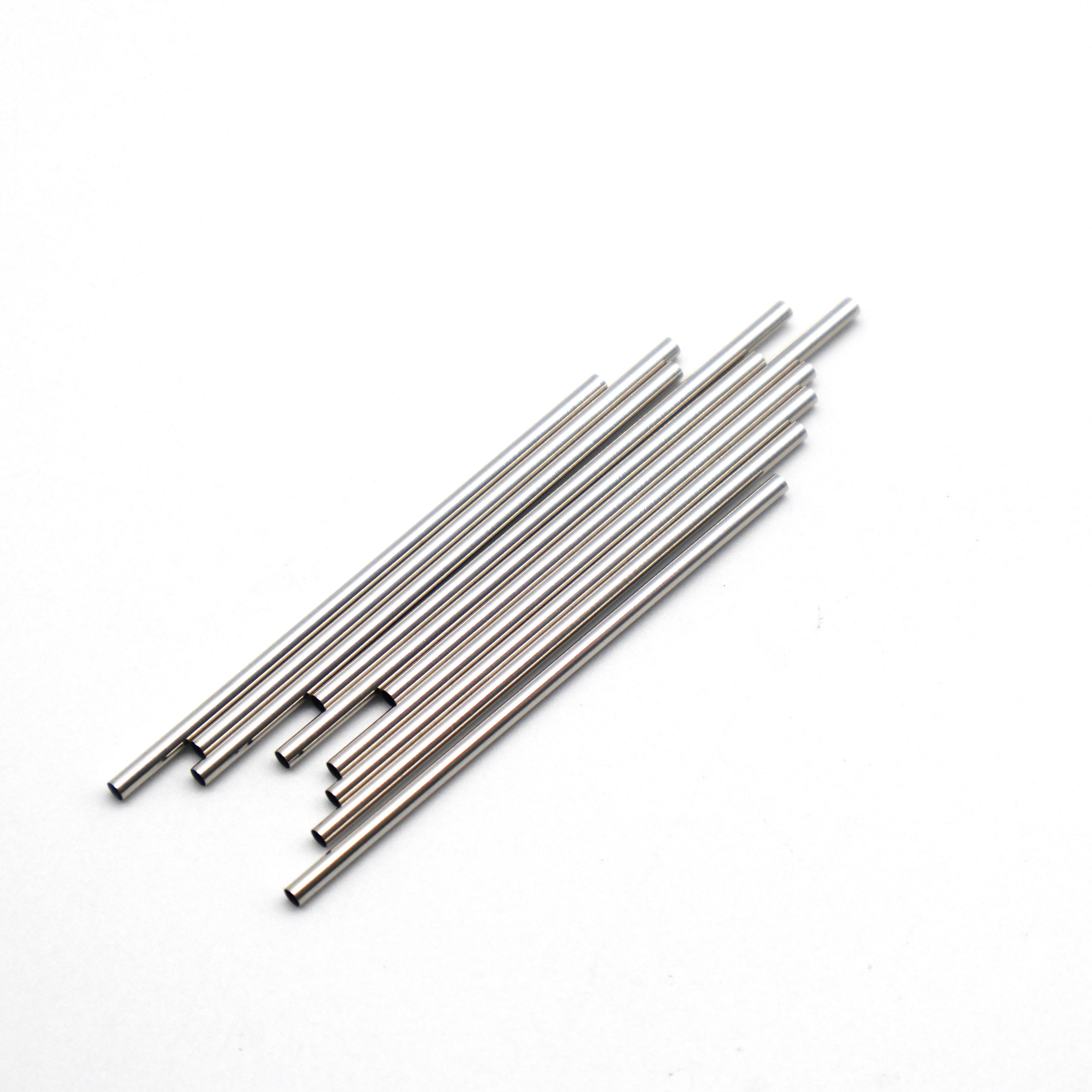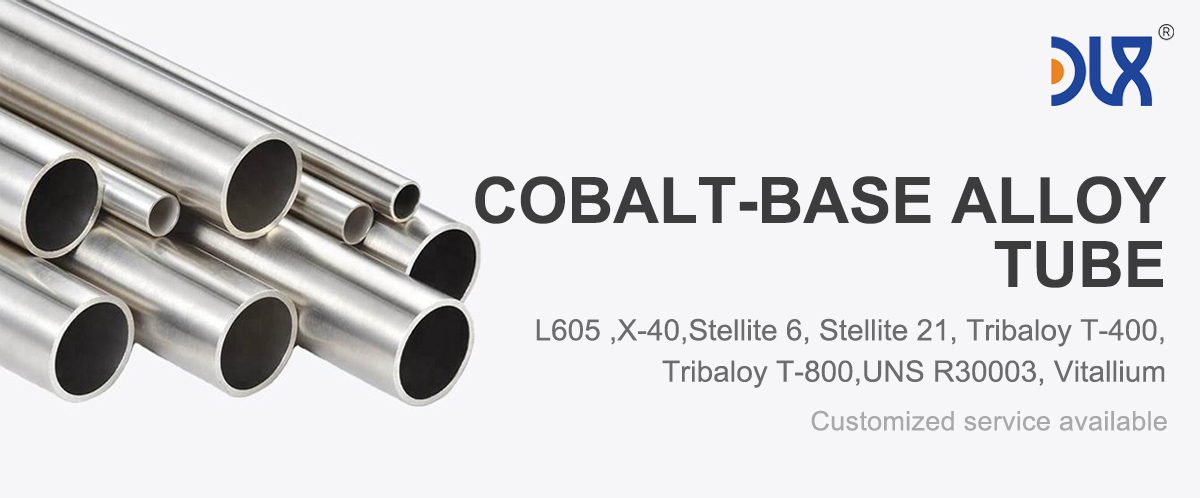
We’re diving into the world of cobalt chromium tubing, a game-changer in the medical implant industry and beyond. As a company deeply invested in delivering top-tier materials, we’re proud to offer high-strength Cobalt Chromium Tube s that meet the demanding needs of modern medical devices. This article covers everything you need to know about this incredible material, from its properties and applications to industry trends and why our product stands out.
For more details, pls directly contact us.
Our cobalt chromium tubes are engineered for performance, designed specifically for medical implants where reliability is non-negotiable. Made from premium cobalt-chromium-molybdenum (CoCrMo) alloys, like ASTM F75 and ASTM F1537, these tubes boast a unique combination of strength, durability, and biocompatibility. With tensile strengths reaching up to 900 MPa or more, they’re built to withstand the toughest conditions, whether inside the human body or in high-stress industrial environments.
The secret sauce? A carefully controlled alloy composition—typically 27–30% chromium, 5–7% molybdenum, and trace elements like carbon and nitrogen—that ensures exceptional corrosion resistance and wear resistance. Chromium forms a passive oxide layer (Cr2O3) that protects the tube from harsh physiological or chemical environments, while molybdenum enhances strength and fatigue resistance. This makes our tubes perfect for long-term applications like orthopedic implants and cardiovascular stents.
We use cutting-edge manufacturing techniques, including seamless forging and additive manufacturing, to produce tubes with precise dimensions and flawless finishes. Whether it’s a small-diameter tube for a stent or a larger one for a hip replacement, our products are tailored to meet exact specifications, ensuring consistency and reliability. Plus, our tubes are rigorously tested to comply with strict regulatory standards, like those set by the FDA and EU’s EUDAMED, so you can trust they’re safe for medical use.
Cobalt-Chromium Alloy Parameters Table
Parameter | Typical Value/Range |
|---|---|
Chemical Composition | Cobalt (Co): 60-70% |
Density | 8.3-8.5 g/cm³ |
Melting Point | 1250-1450°C |
Hardness (Rockwell) | Soft: 20-30 HRC |
Tensile Strength | 800-1200 MPa (depending on alloy and heat treatment) |
Yield Strength | 500-900 MPa |
Young's Modulus | 200-230 GPa |
Elongation | 10-20% |
Corrosion Resistance | Excellent, resistant to acids, alkalis, saline, and high-temperature oxidation |
Biocompatibility | Good, widely used in dental restorations and orthopedic implants |
Wear Resistance | Excellent, suitable for high-wear environments like cutting tools, turbine blades |
High-Temperature Resistance | Maintains performance up to 600-800°C, ideal for aerospace engine components |
Processing Methods | Precision casting, 3D printing, CAD/CAM, laser cladding |
Typical Applications | Dental prosthetics (e.g., crowns, frameworks), aerospace parts, turbine blades, oil drilling rods, medical implants |
Cobalt chromium alloys have been a staple in medical and industrial applications for decades, and for good reason. These alloys are a powerhouse when it comes to mechanical properties. They’re incredibly strong—think yield strengths as high as 900 MPa—making them ideal for load-bearing implants like knee and hip replacements. Their high hardness (550–800 MPa) and wear resistance mean they can handle the constant friction in joint replacements without breaking down.
Corrosion resistance is another standout feature. The chromium content creates a protective oxide layer that stands up to bodily fluids or aggressive industrial chemicals, reducing the risk of degradation over time. This is critical for implants that need to last decades without causing complications like tissue irritation or metal ion release. Speaking of safety, our cobalt chromium tubes are designed with biocompatibility in mind, minimizing allergic reactions or immune responses, though we carefully control nickel content to avoid potential sensitivities.
One thing to keep in mind: cobalt chromium is tougher to machine than other materials like titanium or stainless steel. Its hardness, while a strength, can make fabrication challenging, which is why we’ve invested in advanced machining and additive manufacturing techniques to ensure precision without compromising quality. This also helps us keep costs competitive despite the high price of raw cobalt and chromium.
Comparison Parameters Table
Parameter | Cobalt Chromium Tube | Titanium Alloy Tube | Stainless Steel Tube |
|---|---|---|---|
Tensile Strength (MPa) | 900–1450 | 800–1100 | 500–1000 |
Corrosion Resistance | Excellent | Very Good | Good |
Biocompatibility | High | High | Moderate |
Wear Resistance | Excellent | Good | Moderate |
Density (g/cm³) | 8.3–8.9 | 4.5 | 7.8–8.0 |
Machinability | Difficult | Moderate | Moderate |
Cost | High | Moderate | Low |
Primary Applications | Medical implants, aerospace | Medical implants, aerospace | General medical, industrial |
Applications: Where Our Tubes Shine
Our cobalt chromium tubes are a go-to choice across multiple industries, but they’re especially critical in medical applications. In the healthcare sector, they’re used in:
Cardiovascular Devices: Our small-diameter, high-precision tubes are perfect for stents and guidewires, where flexibility, strength, and biocompatibility are essential. These devices help treat heart disease, a growing concern with an aging global population.
Orthopedic Implants: From hip and knee replacements to spinal implants, our tubes provide the strength and durability needed for load-bearing applications. Their wear resistance ensures longevity, reducing the need for revision surgeries.
Dental Prosthetics: In dentistry, our tubes are used for crowns, bridges, and implant frameworks, offering corrosion resistance and the ability to form intricate shapes for perfect fits.
Beyond medical, our tubes are making waves in other fields:
Aerospace: Their high-temperature strength and corrosion resistance make them ideal for turbine blades and other engine components.
Petrochemical: In harsh environments like oil refineries, our tubes resist corrosion from aggressive chemicals, ensuring reliable performance.
Jewelry: The durability and wear resistance of cobalt chromium make it a premium choice for high-end rings and accessories.
Industry Analysis: What’s Driving the Market?
The cobalt chromium alloy tubing market is on fire, and we’re right at the forefront. With an estimated market size of around $500 million in 2025 and a projected CAGR of 5–12.5% through 2033, the demand for high-performance materials like ours is skyrocketing. What’s fueling this growth?
First, the medical device industry is booming. An aging population and rising chronic diseases like cardiovascular issues and arthritis are driving demand for implants. The global increase in healthcare spending—especially in emerging markets like Asia-Pacific—means more hospitals and clinics need reliable, high-quality materials. Our tubes are perfectly positioned to meet this need, offering unmatched strength and biocompatibility.
Technological advancements are another big driver. Additive manufacturing, like selective laser melting and direct energy deposition, is revolutionizing how we produce cobalt chromium tubes. These methods allow us to create complex geometries and customized implants with improved efficiency and precision. We’re also seeing trends toward hybrid implants, where cobalt chromium is combined with bioactive coatings to enhance osseointegration—basically, helping implants bond better with bone.
But it’s not all smooth sailing. High raw material costs for cobalt and chromium can squeeze margins, and stringent regulatory requirements, like EU’s CE marking and FDA approvals, add complexity to manufacturing. Then there’s competition from materials like titanium alloys, which are lighter, and stainless steel, which is cheaper. However, cobalt chromium’s superior strength-to-weight ratio and corrosion resistance keep it ahead in high-performance applications, and we’re leveraging that edge to stay competitive.
Geographically, North America and Europe dominate the market due to their mature healthcare systems and strict regulatory frameworks. But Asia-Pacific is catching up fast, with countries like China, Japan, and South Korea investing heavily in medical and industrial sectors. We’re expanding our presence in these regions to capitalize on this growth.
Company Comparison: Why Choose Us?
When it comes to cobalt chromium tubing, we’re not just another supplier—we’re a partner you can rely on. Unlike others in the industry, we focus on precision, quality, and innovation. Our tubes are crafted with advanced techniques like seamless forging and 3D printing, ensuring tighter tolerances and fewer defects than traditional casting methods. This means you get consistent, high-performing products every time.
We also prioritize biocompatibility and safety. Our alloys are meticulously formulated to minimize nickel content, reducing the risk of allergic reactions—a concern with some competitors’ products. Plus, our in-house testing ensures every tube meets or exceeds ASTM and ISO standards, giving you peace of mind for medical applications.
Another advantage? Our flexibility. Whether you need micro-tubing for stents or larger diameters for orthopedic implants, we customize our products to your exact specs. And while cobalt chromium can be tough to machine, our state-of-the-art equipment and expertise mean we deliver flawless finishes without jacking up costs.
Finally, we’re ahead of the curve on industry trends. We’re investing in additive manufacturing and exploring new alloy compositions to enhance strength and corrosion resistance. Our R&D team is also working on bioactive coatings to improve implant integration, keeping us at the cutting edge of medical innovation.
Looking Ahead: The Future of Cobalt Chromium Tubing
The future’s bright for cobalt chromium tubing, and we’re excited to lead the charge. As additive manufacturing continues to evolve, we’re exploring ways to push the boundaries of what’s possible—think more complex geometries and even stronger alloys. The growing demand for minimally invasive procedures is also driving innovation in smaller, more flexible tubes for stents and catheters.
Sustainability is another focus. We’re optimizing our manufacturing processes to reduce waste and energy use, ensuring we meet the needs of environmentally conscious customers. And with the global medical device market expected to keep growing, we’re scaling up to meet demand while maintaining our commitment to quality.
For more details, pls directly contact us.
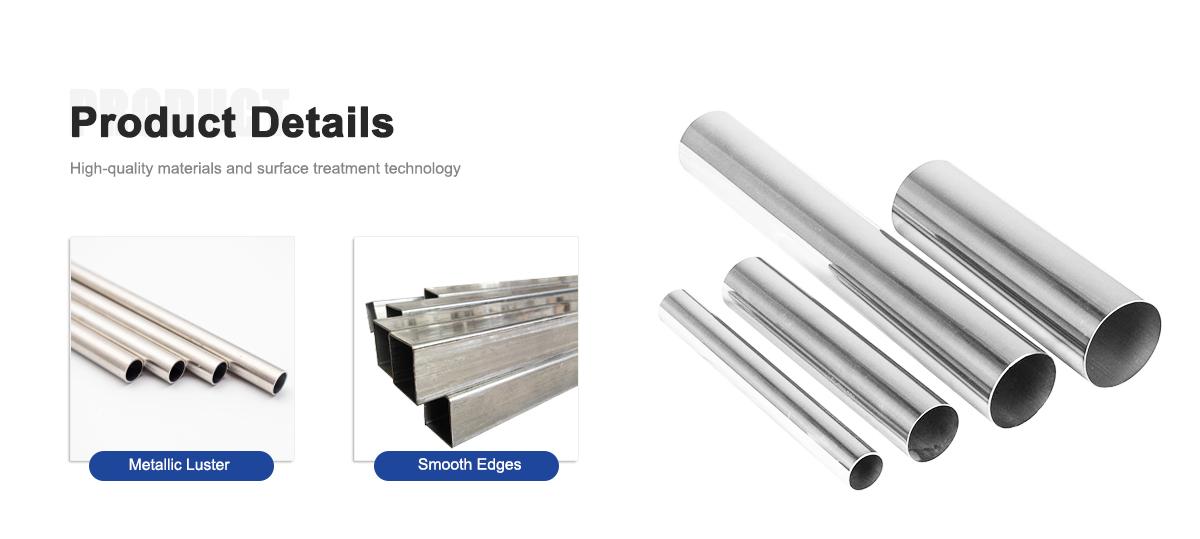
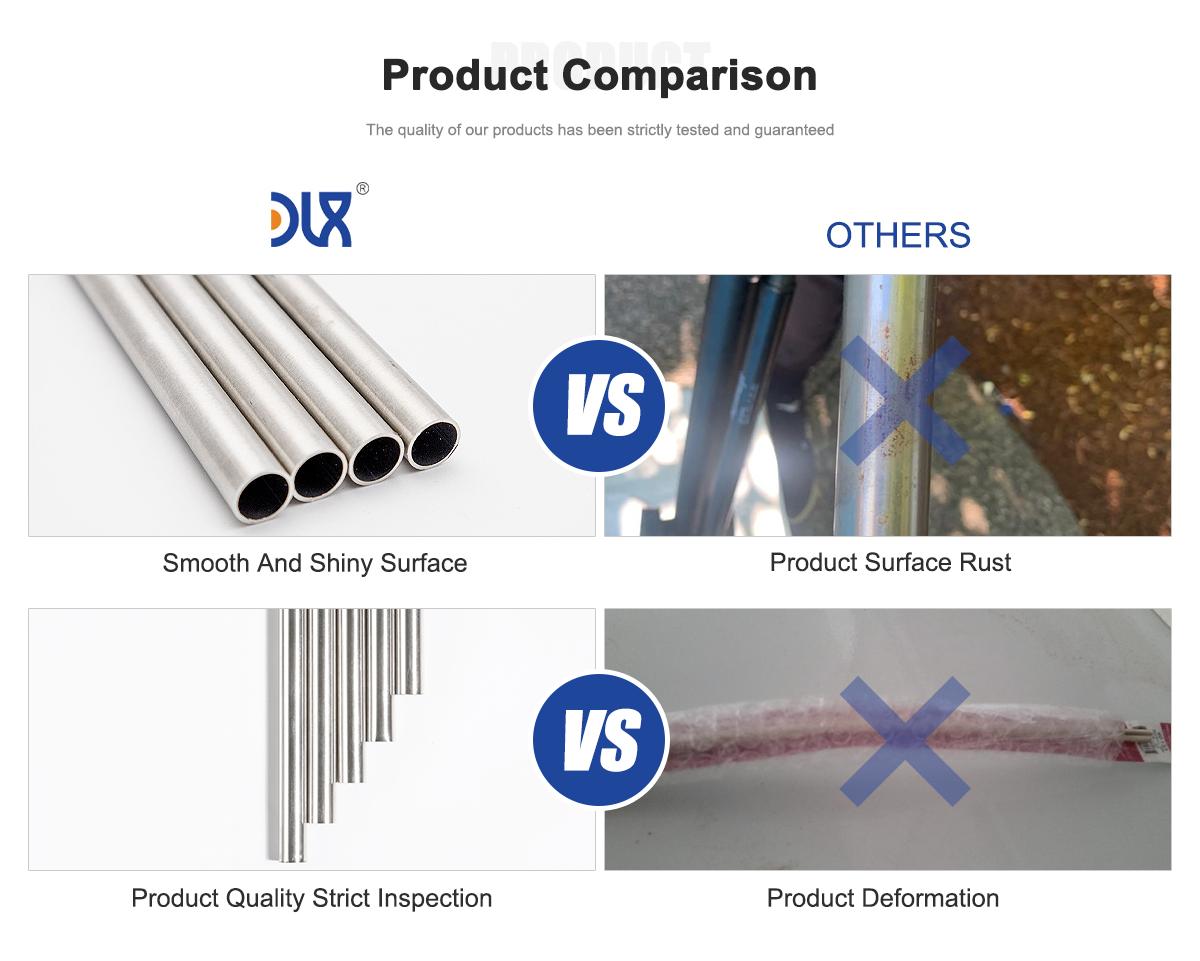
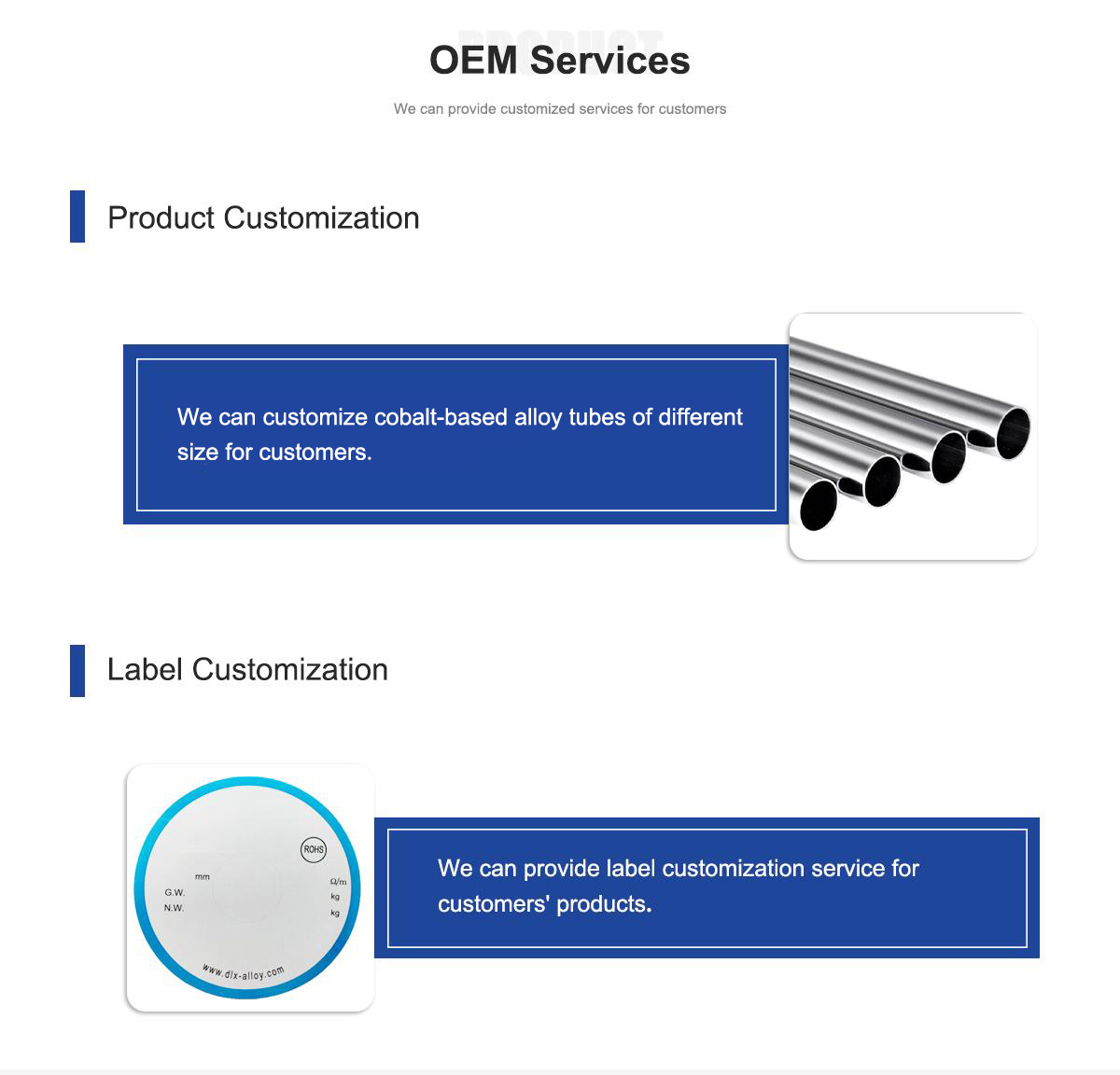
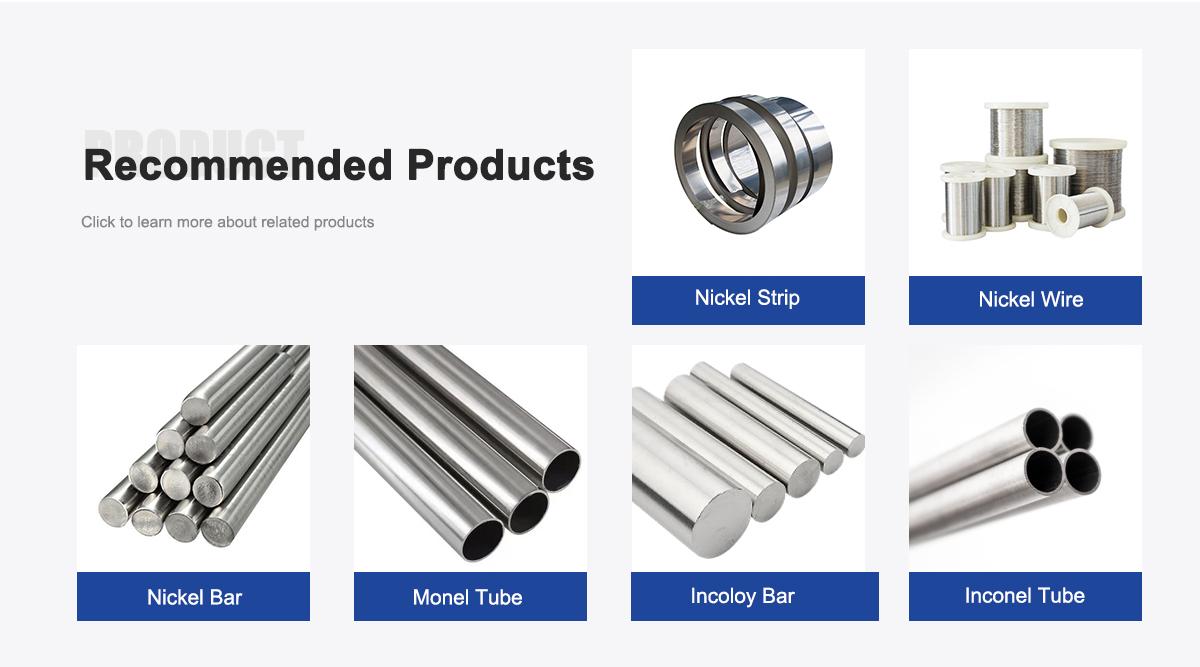
About Us:
Our 12,000㎡ factory is equipped with complete capabilities for research, production, testing, and packaging. We strictly adhere to ISO 9001 standards in our production processes, with an annual output of 1,200 tons. This ensures that we meet both quantity and quality demands. Furthermore, all products undergo rigorous simulated environment testing including high temperature, high pressure, and corrosion tests before being dispatched, ensuring they meet customer specifications.
For all our clients, we offer timely and multilingual after-sales support and technical consulting, helping you resolve any issues swiftly and efficiently.
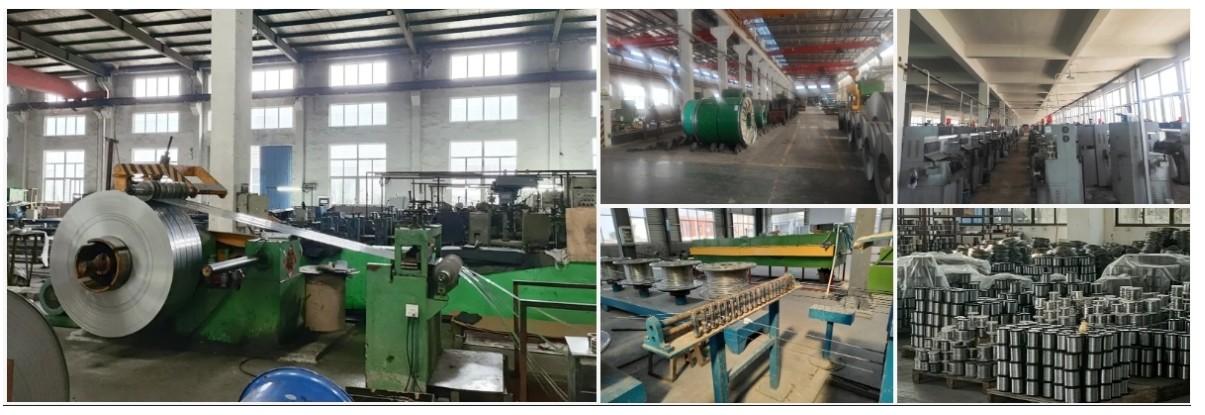
Client Visits
Building Stronger Partnerships

We support all kinds of testing:
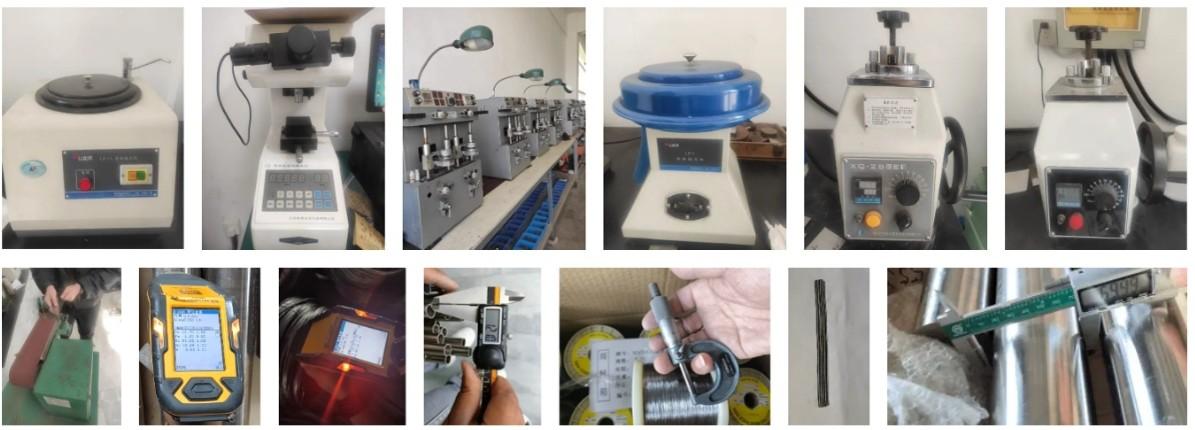

FAQs:
What is cobalt chromium tubing used for in medical implants?
Primarily used for cardiovascular stents, orthopedic implants like hip and knee replacements, and dental prosthetics due to its strength and biocompatibility.Why is cobalt chromium preferred for medical applications?
It offers high strength, excellent corrosion resistance, and biocompatibility, making it ideal for long-term implants in harsh physiological environments.What are the key properties of cobalt chromium tubing?
High tensile strength (up to 900 MPa), wear resistance, corrosion resistance, and biocompatibility with minimal risk of allergic reactions.How is cobalt chromium tubing manufactured?
Through processes like casting, forging, wrought processing, or advanced techniques such as selective laser melting and metal injection molding.Is cobalt chromium tubing safe for the human body?
Yes, it’s biocompatible and safe for implants, though careful alloy composition control is needed to minimize metal ion release.What industries besides medical use cobalt chromium tubing?
Aerospace for turbine blades, petrochemical for corrosion-resistant piping, and jewelry for durable, wear-resistant designs.What are the challenges with cobalt chromium tubing?
High raw material costs and complex machining due to its hardness can increase production costs.What are the latest trends in cobalt chromium tubing?
Advances in additive manufacturing, new alloy compositions for enhanced properties, and integration with bioactiv

